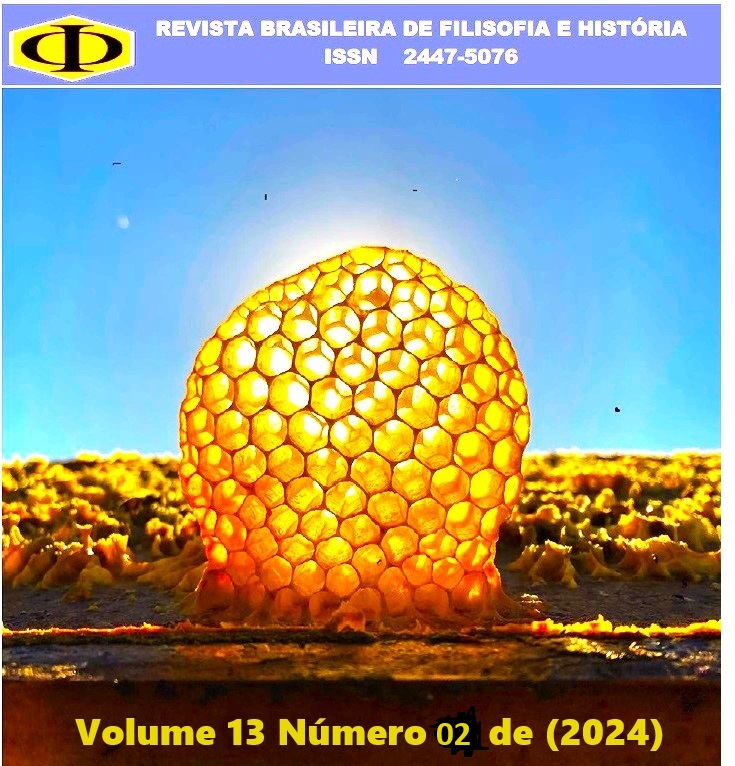Autoridade Coatora no Mandado de Segurança: uma Análise sobre a Teoria da Encampação à luz da Jurisprudência do STJ
DOI:
https://doi.org/10.18378/rbfh.v13i2.10591Palabras clave:
Autoridade Coatora, Mandado de Segurança, Superior Tribunal de Justiça, Teoria da EncampaçãoResumen
O presente trabalho se debruça na análise do papel da autoridade coatora no mandado de segurança, bem como na jurisprudência do Superior Tribunal de Justiça quanto à aplicação da teoria da encampação no mandamus. Inicialmente, a pesquisa volta-se para o estudo dos conceitos iniciais do mandado de segurança, perpassando pela sua origem, previsão constitucional, pelo seu objeto e principais características do procedimento. Em seguida, passa-se à análise do papel da autoridade coatora, investigando a sua posição jurídica no processo do mandado de segurança. Por fim, analisamos os principais pontos da teoria da encampação, desenvolvida pelo STJ em diversos julgados, destacando os requisitos elencados pela Corte para a sua correta aplicação. Em conclusão, captou-se que o mando de segurança constitui importante remédio constitucional voltado para proteção de direito líquido e certo, não amparado por outro remédio específico, e possui características próprias elencadas na Lei n.º 12.106/09. Também se constatou a imprescindibilidade da indicação da autoridade coatora no mandamus, que, apesar das divergências doutrinarias, pode ser considerada como informante. Por fim, a partir dos julgados do STJ, percebemos que três são os requisitos para a utilização da teoria da encampação: a existência de vínculos hierárquico entre as autoridades, manifestação acerca do mérito do ato, e, ausência de modificação da competência estabelecida na Constituição. O trabalho utiliza o método de revisão bibliográfica e de pesquisa documental, mediante pesquisa descritiva e abordagem qualitativa dos dados obtidos.
Citas
ARAÚJO, José Henrique Mouta. A teoria da encampação no procedimento do mandado de segurança e o entendimento do STJ. Thomson Reuters: Revista de Processo, vol. 302/2020, p. 311-323, abr./2020.
BRASIL. Superior Tribunal de Justiça. AgInt no RMS n. 65.045/DF, relator Ministro Sérgio Kukina, Primeira Seção, julgado em 13/2/2008, DJe de 20/06/2024.
BRASIL. Superior Tribunal de Justiça. AgInt nos EDcl no RMS n. 63.346/GO, relator Ministro Paulo Sérgio Domingues, Primeira Turma, julgado em 20/5/2024, DJe de 24/5/2024.
BRASIL. Superior Tribunal de Justiça. MS n. 12.779/DF, relator Ministro Castro Meira, Primeira Seção, julgado em 13/2/2008, DJe de 3/3/2008.
GOÉS, Gisele Santos Fernandes; SILVA, Sandoval Alves da Silva; JESUS, Thiago Vasconcellos. A representação adequada no mandado de segurança coletivo e o formalismo valorativo: uma análise jurisprudencial do Tribunal de Justiça do Estado do Pará. R. bras. Dir. Proc. – RBDPro | Belo Horizonte, ano 28, n. 111, p. 125-149, jul./set. 2020.
JUNIOR, José Américo Zampar. Alguns aspectos do juízo de admissibilidade no Mandado de Segurança. Thomson Reuters, Revista de Processo, vol. 273/217, p. 343-373, nov./2017.
MASSON, Nathalia. Manual de Direito Constitucional. São Paulo: Juspodivm, 2016, p. 327.
MENDES, Gilmar Ferreira; BRANCO, Paulo Gustavo Gonet. Curso de Direito Constitucional. São Paulo: Saraiva Educação, 2020.
NOVELINO, Marcelo. Curso de Direito Constitucional. 11ª edição. Salvador: Editora Juspodivm, 2016.
OLIVEIRA, Alexandre Máximo. A correta indicação da autoridade coatora no Mandado de Segurança. Revista Factu Jurídica, ano 8, vol. 08, ago./2008.
SHIMURA, Sérgio. Considerações sobre a legitimidade na ação constitucional de Mandado de Segurança. Revista Mestrado em Direito, Osasco, ano 10, n. 2, p. 221-252.
Descargas
Publicado
Cómo citar
Número
Sección
Licencia
Derechos de autor 2024 Anna Beatriz de Vasconcelos Gama Barbosa

Esta obra está bajo una licencia internacional Creative Commons Atribución-NoComercial-SinDerivadas 4.0.
Esta é uma revista de acesso livre, onde, utiliza o termo de cessão seguindo a lei nº 9.610/1998, que altera, atualiza e consolida a legislação sobre direitos autorais no Brasil.
Autores que publicam na Revista Brasileira de Filosofia e História (RBFH) concordam com os seguintes termos:
O(s) autor(es) doravante designado(s) CEDENTE, por meio desta, cede e transfere, de forma gratuita, a propriedade dos direitos autorais relativos à OBRA à Revista Brasileira de Filosofia e História (RBFH), representada pelo Grupo Verde de Agroecologia e Abelhas (GVAA), estabelecida na Rua João Pereira de Mendonça , 90 Bairro Petropolis em Pombal - PB doravante designada CESSIONÁRIA, nas condições descritas a seguir: 1. O CEDENTE declara que é (são) autor(es) e titular(es) da propriedade dos direitos autorais da OBRA submetida. 2. O CEDENTE declara que a OBRA não infringe direitos autorais e/ou outros direitos de propriedade de terceiros, que a divulgação de imagens (caso as mesmas existam) foi autorizada e que assume integral responsabilidade moral e/ou patrimonial, pelo seu conteúdo, perante terceiros. O CEDENTE cede e transfere todos os direitos autorais relativos à OBRA à CESSIONÁRIA, especialmente os direitos de edição, de publicação, de tradução para outro idioma e de reprodução por qualquer processo ou técnica através da assinatura deste termo impresso que deverá ser submetido via correios ao endereço informado no início deste documento. A CESSIONÁRIA passa a ser proprietária exclusiva dos direitos referentes à OBRA, sendo vedada qualquer reprodução, total ou parcial, em qualquer outro meio de divulgação, impresso ou eletrônico, sem que haja prévia autorização escrita por parte da CESSIONÁRIA.















